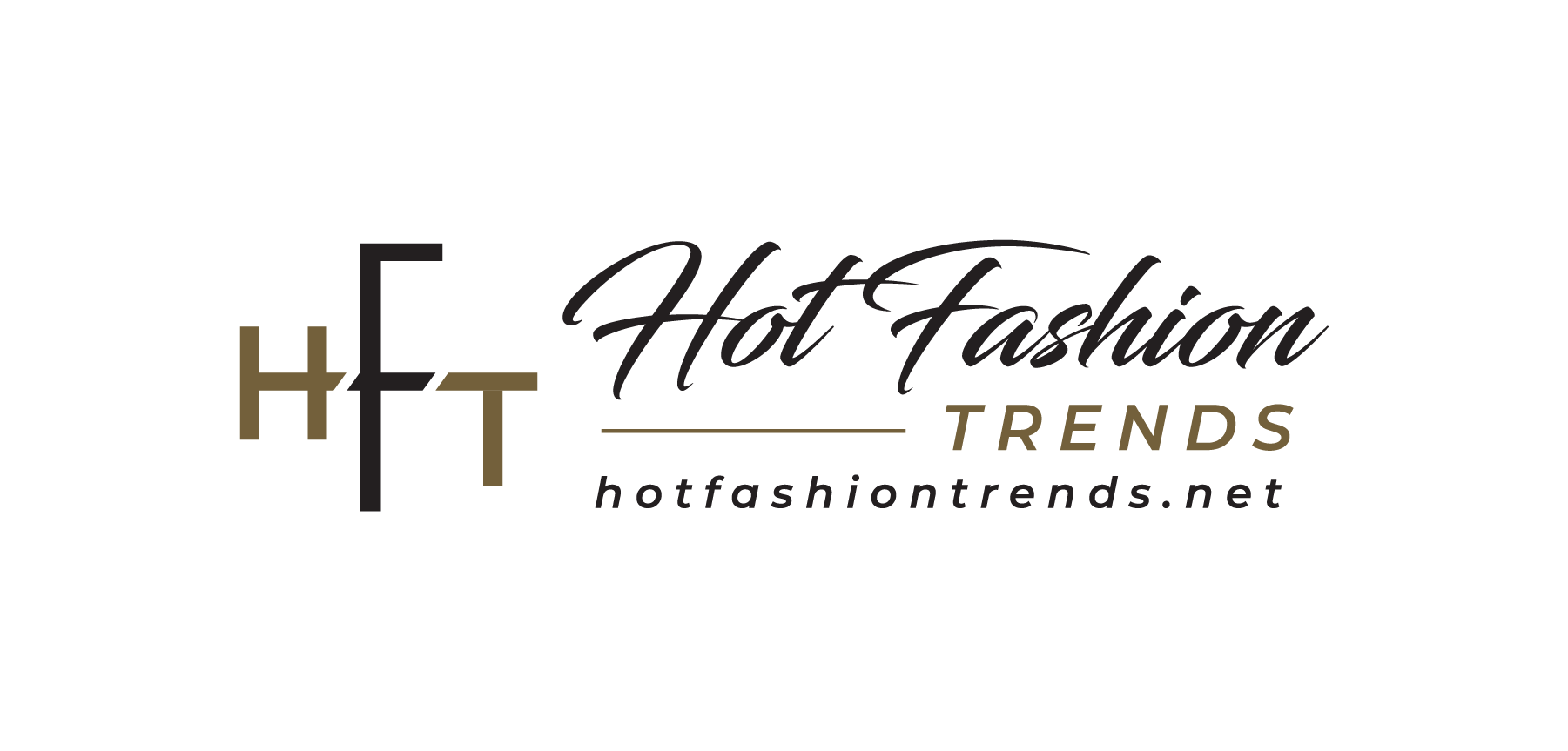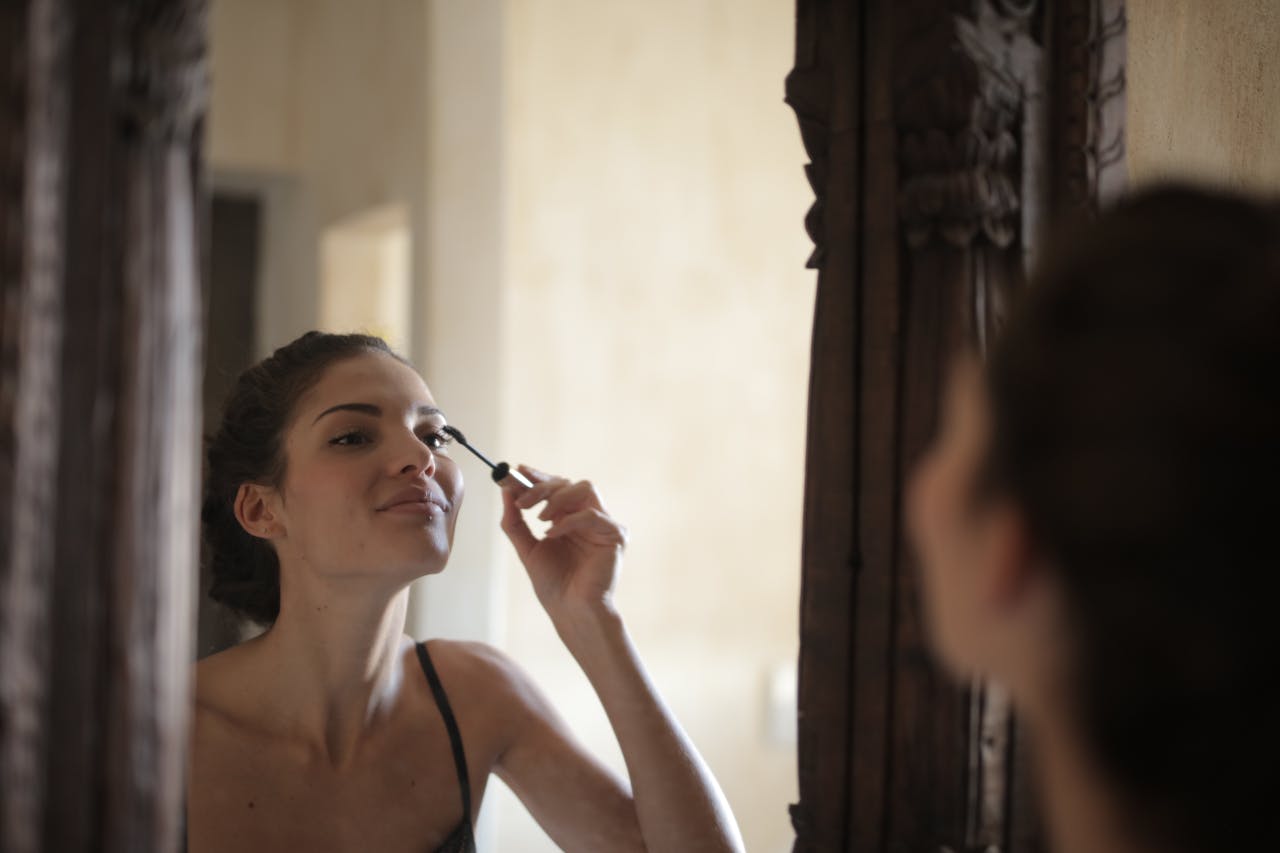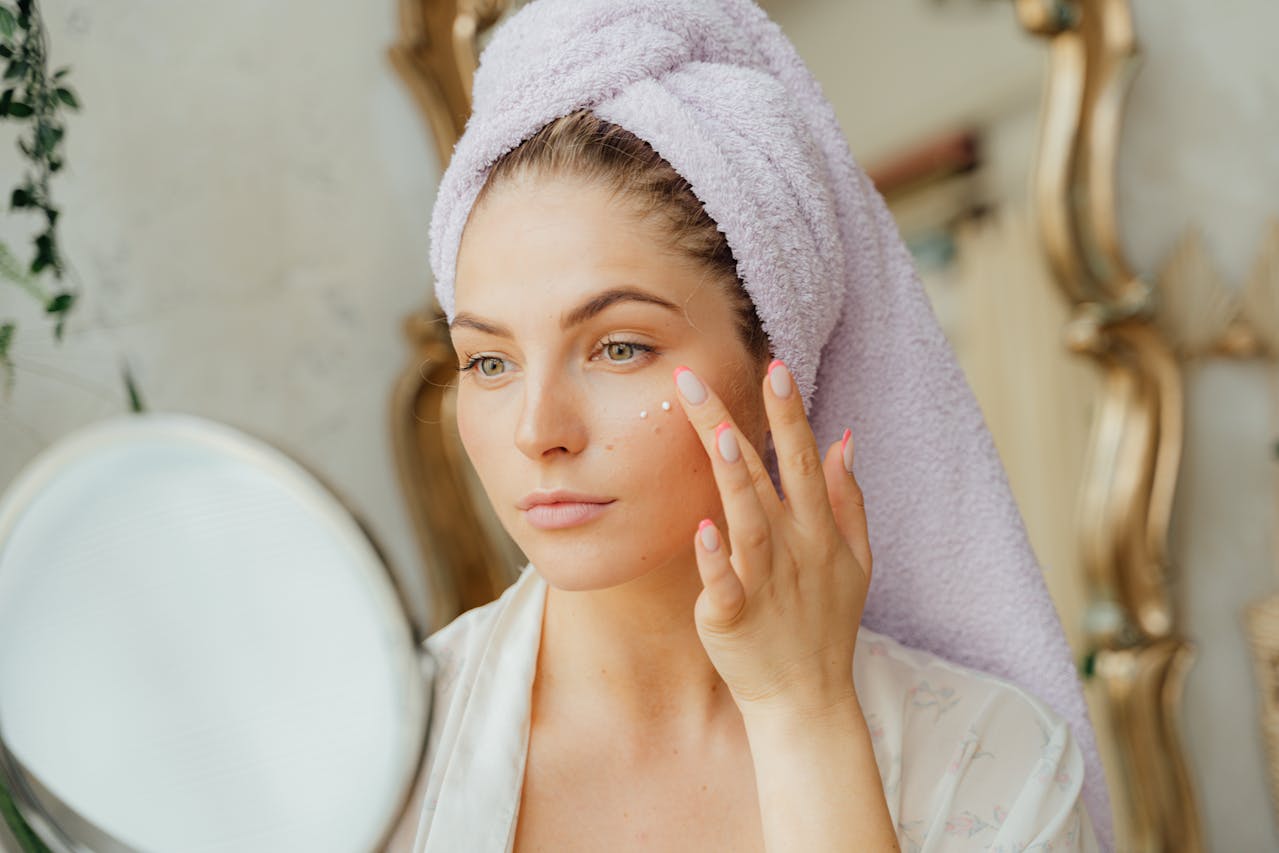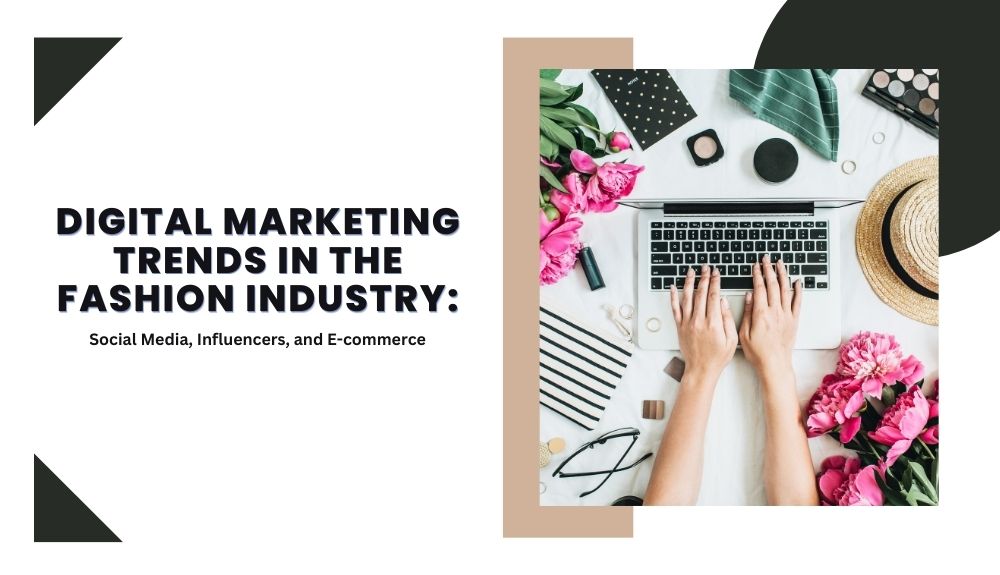Digital Marketing Trends in the Fashion Industry: Social Media, Influencers, and E-commerce
Welcome to the dazzling realm of digital marketing in the fashion industry, where style meets technology and trends are just a click away! In this fast-paced world, staying ahead of the curve is not only essential but also exhilarating. Gone are the days when fashion brands relied solely on traditional marketing methods to captivate their audience. Today, it’s all about embracing the ever-evolving landscape of social media, harnessing the power of influencers, and unleashing the potential of e-commerce.
In this blog post, we’ll delve into some exciting digital marketing trends that have taken the fashion industry by storm. From Instagram’s visual allure to TikTok’s viral sensations and Pinterest’s infinite inspiration boards – we’ll explore how these platforms have transformed fashion marketing as we know it.
But that’s not all! We’ll also uncover how influencer marketing has become a force to be reckoned with in shaping consumer behavior and brand perception within this glamorous realm. And let’s not forget about e-commerce – an indispensable tool for any fashion brand seeking success in today’s online marketplace.
So grab your virtual front row seat as we dive deep into these cutting-edge strategies that combine social media, influencers, and e-commerce like never before. But first things first…let us unravel the impact of social media on fashion marketing! Get ready for a fashionable journey unlike any other!
The Impact of Social Media on Fashion Marketing
Social media has revolutionized the way fashion brands market their products and connect with their target audience. Platforms like Instagram, TikTok, and Pinterest have become powerful tools for showcasing fashion trends, engaging with followers, and driving sales.
Instagram is undoubtedly one of the most influential social media platforms in the fashion industry. With its visually focused content, it allows brands to showcase their latest collections through captivating images and videos. Fashion influencers on Instagram play a crucial role in promoting brands by sharing outfit inspirations, product recommendations, and behind-the-scenes glimpses into the fashion world.
TikTok has emerged as a game-changer in recent years when it comes to reaching younger audiences. The short-form video platform enables creative storytelling that captures attention within seconds. Fashion brands can leverage TikTok’s viral nature by creating entertaining videos featuring new arrivals or unique styling tips to increase brand awareness among Gen Z consumers.
Pinterest serves as a digital mood board where users discover inspiration for all aspects of life – including fashion. It provides an opportunity for fashion brands to showcase their products through visually appealing pins while also offering DIY tutorials or style guides that cater to users’ interests.
The impact of social media on fashion marketing goes beyond just brand promotion; it helps shape consumer preferences and influences purchasing decisions. Through likes, comments, shares, and saved posts on these platforms, customers actively engage with brands they love or aspire to be associated with.
In this digital era where social media plays a significant role in everyday life, harnessing its power is essential for any successful marketing strategy in the dynamic world of fashion.
A. Instagram
Instagram has become a powerhouse in the fashion industry, revolutionizing the way brands market their products and connect with consumers. With over one billion active users worldwide, it’s no wonder that fashion brands are flocking to this platform to showcase their latest collections and engage with their audience.
One of the key features that sets Instagram apart is its visual nature. Fashion is all about aesthetics, and Instagram allows brands to curate a visually stunning feed that captures the essence of their brand. From perfectly styled flat lays to behind-the-scenes footage from runway shows, Instagram provides an opportunity for brands to tell their story through captivating imagery.
In addition to showcasing products, Instagram also offers various tools for engaging with followers. Brands can create interactive polls or quizzes in Stories, encouraging user participation and feedback. The Explore page algorithm also helps expose users to new content based on their interests, making it easier for smaller or emerging fashion brands to gain exposure.
But it’s not just about posting pretty pictures on Instagram – engagement is key. Building a loyal following requires consistent interaction with followers through comments and direct messages. Authenticity is highly valued by consumers in today’s digital age; they want transparency from the brands they support.
Moreover, Instagram has introduced shopping features such as product tagging and shoppable posts. This means that users can now shop directly within the app without being redirected elsewhere – providing convenience and simplifying the customer journey.
Instagram has transformed how fashion brands market themselves online by offering a visually appealing platform where storytelling meets commerce seamlessly
B. TikTok
TikTok: The New Frontier of Fashion Marketing
When it comes to digital marketing trends in the fashion industry, TikTok is a force to be reckoned with. This rapidly growing social media platform has taken the world by storm, capturing users’ attention with its short-form videos and creative challenges.
Fashion brands have quickly recognized the potential of TikTok as a powerful tool for reaching younger audiences and driving engagement. With its algorithm that prioritizes discoverability and virality, TikTok allows fashion brands to showcase their latest collections in an engaging and visually captivating way.
One of the reasons why TikTok has become such a popular platform for fashion marketing is its ability to inspire trends. Users can easily go from watching a dance routine featuring trendy outfits to discovering new styles through hashtag challenges. This presents a unique opportunity for fashion brands to not only showcase their products but also influence consumer behavior.
In addition, TikTok’s emphasis on authenticity makes it an ideal platform for influencer collaborations. Fashion influencers can create content that seamlessly integrates branded products into their videos, making it feel like genuine recommendations rather than overt advertisements.
Furthermore, TikTok’s e-commerce integration feature further enhances its value for fashion marketers. By linking directly to product pages within the app itself, brands can drive traffic and conversions more efficiently than ever before.
However, while TikTok offers exciting opportunities for fashion marketers, there are also some considerations to keep in mind. As with any social media platform, maintaining brand reputation is crucial amidst user-generated content that may not align with brand values or aesthetics.
In conclusion,
TikTok has revolutionized the way fashion brands engage with consumers online. Its unique features offer endless possibilities for creativity and collaboration within the industry. As this dynamic platform continues to evolve and gain popularity among young audiences globally,
fashion marketers must stay agile and adapt their strategies accordingly
C. Pinterest
Pinterest has become a powerful platform for fashion brands to showcase their products and inspire users with visually appealing content. With its focus on visual discovery, Pinterest offers a unique opportunity for fashion marketers to reach potential customers in an engaging way.
One of the main advantages of using Pinterest for fashion marketing is its highly targeted audience. Users on Pinterest are actively seeking inspiration and ideas, making them more likely to engage with fashion-related content. Fashion brands can create boards that represent different styles or trends, curating images that resonate with their target audience.
In addition, Pinterest’s search functionality allows users to discover new products and ideas based on keywords they enter. This presents an excellent opportunity for fashion brands to optimize their content by using relevant keywords in pin descriptions and titles. By doing so, they can increase their visibility and attract users who are specifically interested in what they have to offer.
Furthermore, Pinterest’s shopping features make it easy for users to purchase products directly from pins. Fashion brands can leverage this feature by creating shoppable pins that link directly to product pages on their website. This seamless integration between browsing and buying makes it convenient for users to make purchases without leaving the platform.
Pinterest provides a valuable space for fashion marketers looking to tap into the visual nature of the industry. Its highly engaged user base coupled with its shopping functionalities make it an effective tool for driving traffic and sales for fashion brands online.
The Rise of Influencer Marketing in the Fashion Industry
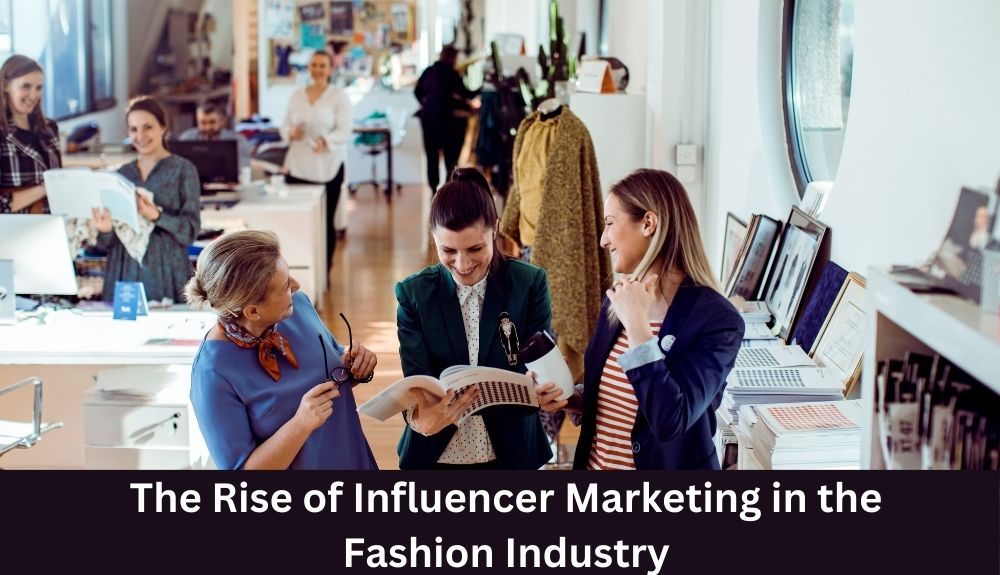
In recent years, there has been a noticeable shift in the way fashion brands approach their marketing strategies. Traditional advertising methods are no longer as effective as they once were, and brands have turned to influencer marketing to reach their target audience in a more authentic and engaging way.
Influencers, who have built large followings on platforms like Instagram and YouTube, have become powerful voices within the fashion industry. Their ability to connect with their followers on a personal level makes them an ideal vehicle for brand promotion.
Fashion brands now collaborate with influencers by sending them products or inviting them to events, hoping that they will feature these items in their posts or videos. This strategy allows brands to leverage the influence and credibility of these individuals while also reaching a wider audience.
What sets influencer marketing apart from traditional advertising is its ability to feel more genuine and relatable. When consumers see someone they follow genuinely enjoying a product or wearing a particular outfit, it feels like a recommendation from a friend rather than an advertisement.
In addition to promoting products directly through sponsored content, influencers also play an important role in shaping trends within the fashion industry. They can be seen attending Fashion Weeks around the world, sitting front row at designer shows, and collaborating with brands on exclusive collections.
However, it’s important for fashion brands to carefully choose which influencers they work with. Authenticity is key when it comes to successful influencer collaborations; audiences can quickly detect insincere endorsements. Brands should look for influencers whose values align with theirs and who genuinely engage with their followers.
In conclusion, Influencer marketing has revolutionized the way fashion brands promote themselves online. By partnering with influential individuals who have established trust among their followers, companies can tap into new markets and drive sales. It’s clear that this trend will continue shaping the future of digital marketing in the fashion industry.
Utilizing E-commerce for Fashion Marketing Success
In today’s digital age, e-commerce has become a game-changer for the fashion industry. With the rise of online shopping, fashion brands have found new opportunities to reach their target audience and increase sales. E-commerce allows fashion brands to showcase their products in an interactive and visually appealing way, creating a seamless shopping experience for customers.
One of the key advantages of e-commerce is its ability to reach a global audience. No longer limited by geographical boundaries, fashion brands can now expand their customer base beyond traditional brick-and-mortar stores. Through strategic online marketing efforts such as search engine optimization (SEO) and targeted advertising campaigns, fashion brands can attract potential customers from all corners of the world.
Moreover, e-commerce platforms offer valuable data insights that can help fashion brands make informed marketing decisions. By analyzing customer behavior and preferences through analytics tools, brands can tailor their marketing strategies accordingly. This data-driven approach enables them to deliver personalized recommendations and offers based on individual preferences, enhancing customer satisfaction and loyalty.
Another aspect where e-commerce excels is convenience. Customers can browse through various collections at any time from the comfort of their own homes or even on-the-go using mobile devices. With secure payment options and hassle-free return policies in place, consumers feel more confident about purchasing clothing items online.
Additionally, social media integration plays a crucial role in leveraging e-commerce success in the fashion industry. By connecting social media platforms with online stores, fashion brands create a seamless transition between browsing inspirations on Instagram or Pinterest to making purchases directly within a few clicks.
To maximize e-commerce success further, it’s essential for fashion brands to optimize their websites for mobile devices since many users prefer shopping via smartphones nowadays. Mobile-friendly design ensures smooth navigation while providing an engaging user experience across different screen sizes.
In conclusion, E-commerce has revolutionized how the fashion industry markets its products by offering global reach, valuable data insights, convenience, and social media integration.
Strategies for Combining Social Media, Influencers, and E-commerce
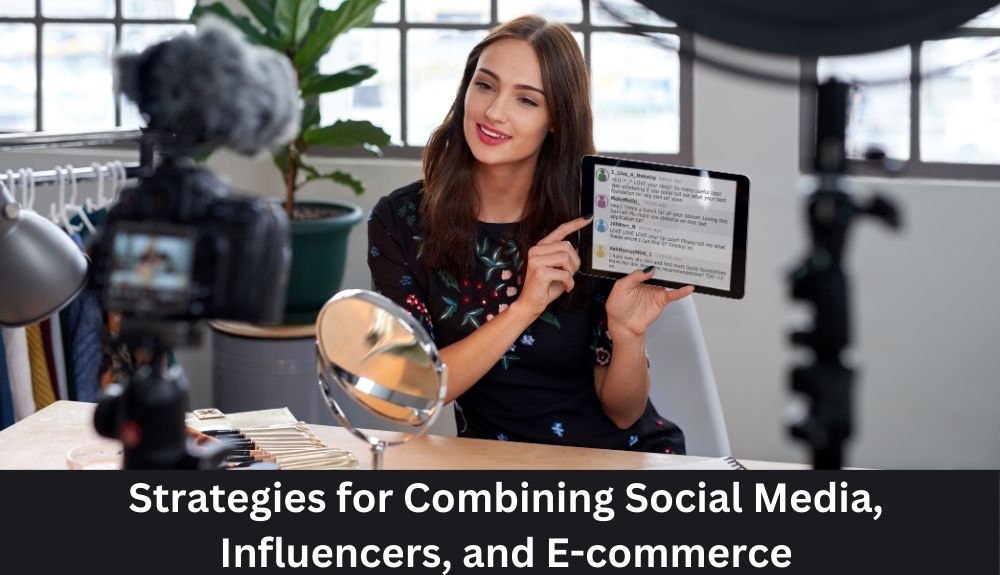
1. Collaborate with influencers:
Partnering with relevant fashion influencers can significantly boost your brand’s visibility on social media platforms. Seek out influencers who align with your brand’s values and have a strong following of engaged followers. By collaborating with them to create sponsored content or hosting giveaways, you can tap into their audience and drive traffic to your e-commerce site.
2. Leverage user-generated content:
Encourage your customers to share their experiences with your products on social media by creating branded hashtags or running contests. User-generated content adds authenticity to your brand and serves as free advertising when shared across various social media platforms.
3. Provide exclusive discounts:
Use social media channels as a way to offer exclusive discounts or promotions that are only available through e-commerce. This creates a sense of urgency among followers and encourages them to make purchases directly from your website.
4. Utilize shoppable posts:
Take advantage of the shoppable post features offered by platforms like Instagram and Pinterest. These allow users to shop directly from the platform without having to navigate away from their feed, making it easier for them to purchase products showcased in those posts.
5. Optimize product descriptions for SEO:
When listing products on your e-commerce site, ensure that the descriptions contain relevant keywords that potential customers might use when searching for similar items online.
Remember, combining social media, influencer marketing, and e-commerce requires careful planning and execution but can lead to significant growth opportunities for fashion brands in today’s digital landscape!
Challenges and Considerations for Fashion Brands in Digital Marketing
While digital marketing offers numerous opportunities for fashion brands to reach and engage with their target audience, it also comes with its fair share of challenges. Here are some considerations that fashion brands need to keep in mind when navigating the world of digital marketing:
1. Changing algorithms: Social media platforms constantly update their algorithms, which can impact the visibility of a brand’s content. It’s important for fashion brands to stay updated on these changes and adapt their strategies accordingly.
2. Oversaturation: The fashion industry is highly competitive, both offline and online. With so many brands vying for attention on social media platforms, it can be challenging for individual brands to stand out from the crowd.
3. Authenticity concerns: In an era where consumers value authenticity, fashion brands need to ensure that their digital marketing efforts come across as genuine and transparent. This means working with influencers who align with their brand values and maintaining an authentic voice across all channels.
4. Adapting to new platforms: As new social media platforms emerge or gain popularity, staying ahead of the curve becomes crucial for fashion brands. They must be willing to experiment with different platforms while understanding where their target audience is most active.
5. Balancing creativity with data-driven insights: While creativity plays a significant role in successful digital marketing campaigns, data-driven insights are equally important in measuring performance and optimizing strategies. Finding the right balance between creativity and analytics can be a challenge but is essential for long-term success.
6. Technical considerations: E-commerce websites require regular maintenance, updates, SEO optimization, ensuring smooth user experience (UX), mobile responsiveness & security measures like SSL certificates etc..
In conclusion, Digital marketing has revolutionized the way the fashion industry promotes itself by leveraging social media platforms such as Instagram, TikTok , Pinterest along with influencer partnerships and e-commerce.
